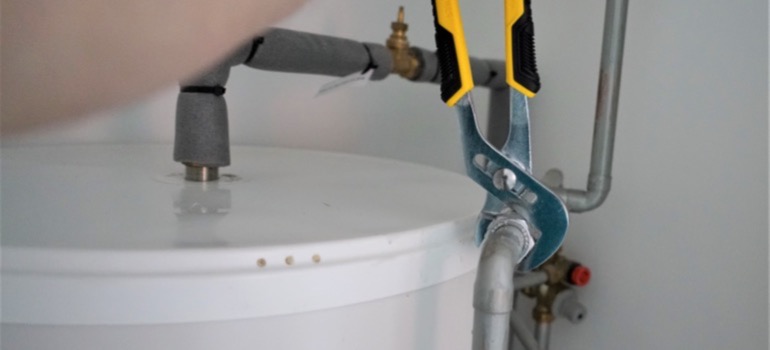
By Lisa Roberts
Making sure that you choose the right house and viewing them can be very exciting. However, it can also be a lot of work. Especially if this is your first time buying one, since buying a house is a lot different from looking for apartments to buy or rent. Even when you are working with a great real estate agent and you have a solid understanding of what you are looking for in a house, viewing houses takes time and energy. Even though every house requires an individual approach when analyzing it, there are a few essential questions to ask every time you visit a new one.
Once you get the answers to these questions with each property, it is much easier to compare them all and make an informed decision about which one is for you and your family.
1. Why is the seller moving?
While it might sound a bit intrusive to ask, knowing why a seller is leaving is crucial. A seller who has decided to leave the area so that they can take a different job opportunity or who has outgrown the home has a very different attitude towards selling than someone who is moving because they don’t get along with the neighbors. Simply put, knowing why the seller is leaving can help you know if there is some room to negotiate the price. If the seller is highly motivated, you are very likely to be able to request additional contingencies in your offer.
If you feel uncomfortable with openly asking this question, experts from Centennial Moving advise you to look closely when moving house. This means that if you open the kitchen cabinets or the bedroom closet and see that they’ve already had movers take everything out, it’s a good sign that they are in a bit of a hurry to sell.
2. What’s the area like?
The interior of a house isn’t the only thing to consider when buying. You must remember that all homes can be renovated or repaired, but you can’t move them. One of the most essential questions to ask during a house tour is what the neighborhood is like. You can ask the seller what their experiences with neighbors are. Or you can ask what the schools in the area are like.

One of the essential questions to ask when moving with kids is whether there are good schooling options in the area.
You can also do some independent research of your own too. Look up the crime rates online, or take a stroll around the neighborhood after the visit and look around. A great idea is to visit at different times of the day.
3. How long has the property been on the market?
This question should be directed at your real estate agent. Properties sitting on the market for a while may have more motivated sellers. It can also signal a major problem that’s stopped, other potential buyers. Alternatively, if the home looks great but hasn’t been available for long, you may have to prepare to make an offer very soon.
4. Are there any problems with the house?
While it is technically accurate that the seller is not legally required to reveal certain pieces of information about the home, most of them will do so, especially if you announce that you will be doing a home inspection. It isn’t in their interest that you do the inspection, get surprised by a problem, and back out of the sale last minute. Make sure you listen carefully to any information the seller gives you about the home’s condition. It’s also wise to learn about some of the problems that sellers most commonly try to hide and ask each individually.
5. Are there any disclosures?
As we have already mentioned, a seller does not legally have to tell you about minor problems like a squeaky floorboard. However, they do have to report all major problems. For instance, they have to tell you if there is lead paint in the house. And in some places, they also need to disclose the presence of:
- asbestos,
- mold,
- water damage,
- pest damage.

If the home has water damage, you should assume that you’ll be hiring a plumber the moment you move in.
However, in case even the seller doesn’t know, you can’t expect them to reveal the information. That is when professional home inspections and tests come into play. This is one of the essential questions to ask when checking out a house because it’s just a simple reminder for the seller, but it can be crucial to know.
6. How efficient is the heating and cooling system?
One of the most expensive renovations you can do on a home is replacing the heating and cooling systems. Replacing an old furnace will cost a considerable amount of money. Even some newer furnaces or heat pumps can be too loud or lack the energy efficiency that more current models can give you. The point of asking this question is to find out whether repairing or replacing the heating or cooling system will pose an immediate concern.
7. How old is the roof?
A roof replacement is an enormous expense and one that a person who will be moving soon might decide to skip. A new roof can cost thousands of dollars, so it’s smart to find out whether that’s something you’ll have to do right away. A roof in need of repair could also be a problem for your mortgage lender.

If the roof is too old or wasn’t kept well, it can create a problem for you after buying.
If everything else is perfect in a home, this shouldn’t be a deal breaker. You can always cut back on other expenses to be able to do the replacement as soon as possible. For instance, if you want to save money when moving, even simple things like buying packing supplies at the dollar store can help you do this on a budget.
8. Is there a homeowners association?
Asking your realtor this question will help you learn four essential things:
- Does the area have rules and regulations you have to follow;
- Are there any fees;
- When are they due;
- What do they pay for?
If you are a first-time house buyer, a homeowners association might be a helpful thing. But, seeing as the fees can sometimes be very big and serve a purpose that you may not need, it can definitely also be a bug turn-off.
Key Takeaways
Asking your real estate agent to suggest some other essential questions to ask based on your requirements for a home is a great idea. And if you remember to write down the answers for each property, it can be of great help when you want to compare all of them later. All in all, getting informed and knowing exactly what you can expect can help you make the home buying process move more smoothly and make sure that you make the right choice for you.
